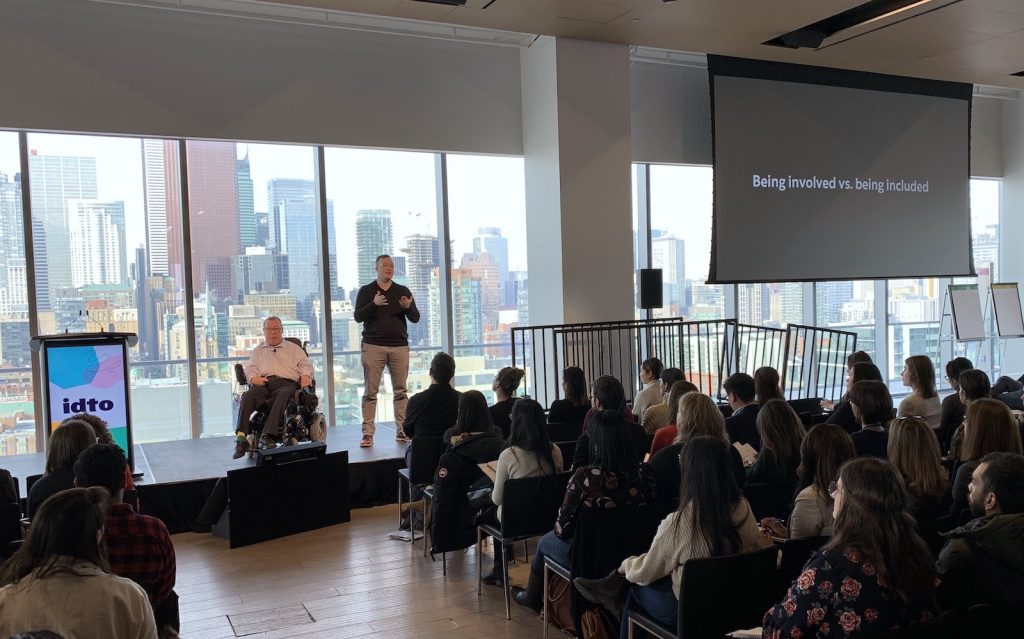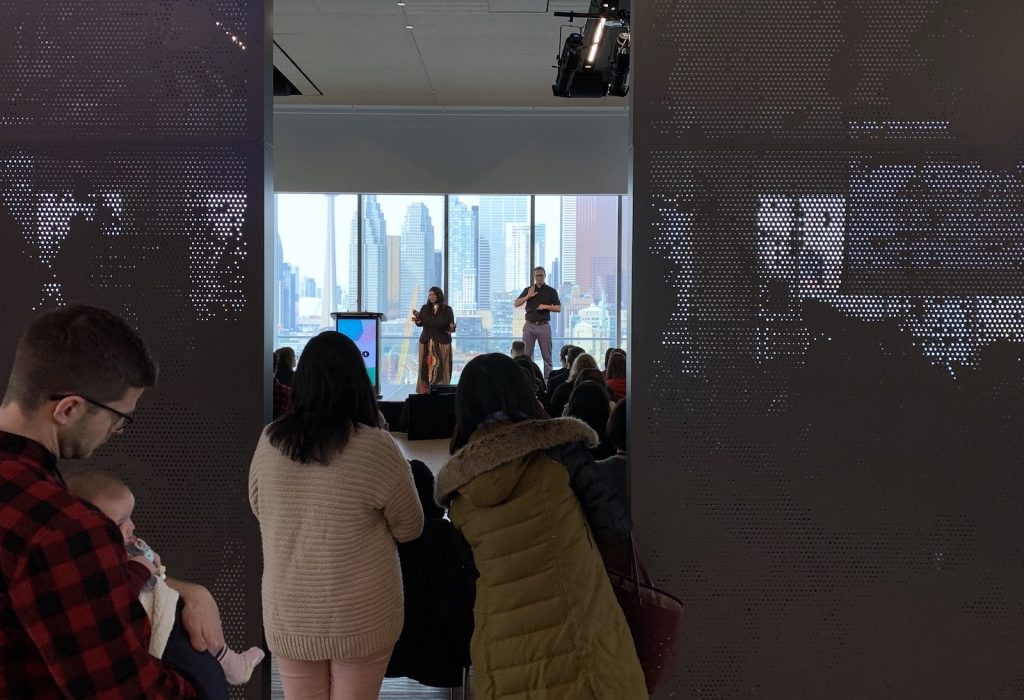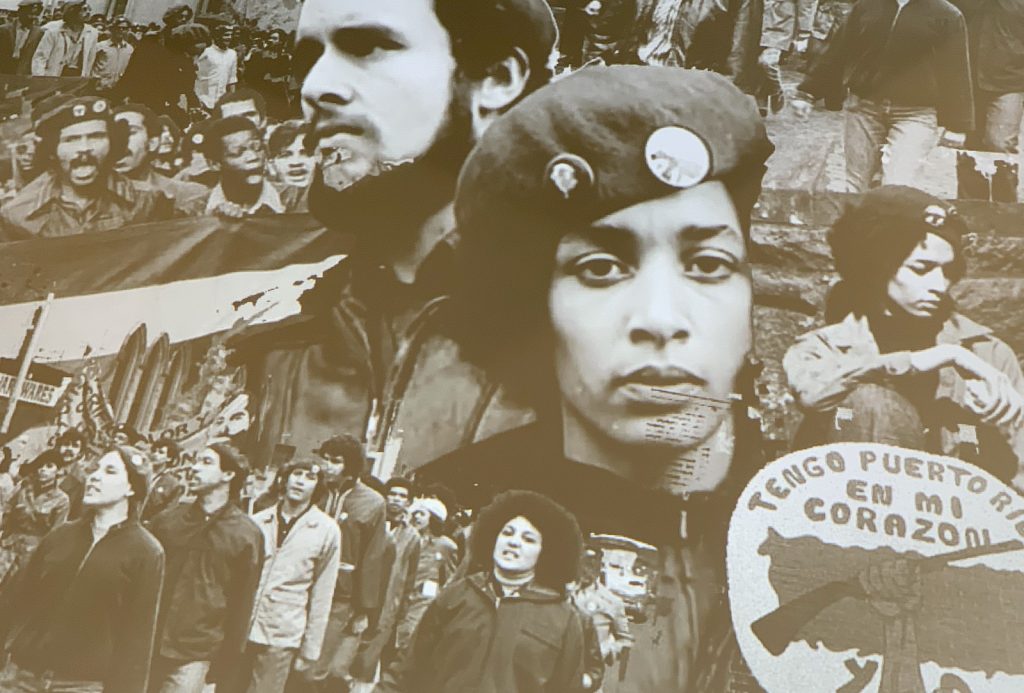Our team emerged from the recent Inclusive Design Toronto Conference (IDTO) inspired, energized, and more enthusiastic champions of inclusion in our industry.
This one-day event expanded our inclusive design horizons, and connected us with other professionals in the Greater Toronto Area who are embedding diversity and inclusion into their design work.
Reflecting on a packed day of learning and open conversations, our highlights include:
- learning about Mattel’s rationale and approach to developing their new gender neutral doll,
- seeing how Scotiabank is creating more inclusive design communities,
- listening to Ontario’s College of Art and Design’s roadmap to decolonize design.
Our top takeaway:
Inclusivity isn’t about feeling sorry for people.
This blunt quote is from Scotiabank’s Global Enterprise Agile Leader, Dave Dame. His talk “Sorry is not inclusion” still resonates with us.
Dame’s talk centred on his personal story of living with cerebral palsy, and how he’s dealt with inaccessible, non-inclusive spaces throughout his life. From inaccessible washrooms in offices, to technology enabling access to new opportunities, Dave shared the full gamut of experiences.

What made Dame’s talk especially memorable was his powerful reminder that designers can’t solely focus on making spaces compliant with accessibility regulations, he urged us to design in a way that makes spaces delightful and effortless for all.
“What I want to challenge you with is this: When you’re designing things, don’t just make it possible. Make it effortless.”
-Dave Dame, Global Enterprise Agile Leader at Scotiabank
Decolonizing design processes

The Ontario College of Art and Design University’s Faculty of Design Dean, Dori Tunstall presented a talk called ‘Decolonizing Design: How Diversity and Inclusion is Not Enough.’ Filled with personal anecdotes and impactful examples, it gave us a glimpse into how large, multi-faceted organizations like OCAD can move design beyond its exclusion-oriented past. Tunstall used a vivid ‘dancing’ analogy to illustrate how the status-quo approach to diversity and inclusion is not enough. This was a great empathy-inspiring quote from her talk:
“When you ask people to come in—especially diverse peoples—and you ask them to dance, but you ask them to dance to a white, European, male cis, hetero, middle-class, able-bodied, and Christian status quo, it’s genocide to the spirit. So in that way, ‘inclusion’ is not always enough.”
Continuing this analogy, Tunstall suggested a more comprehensive approach to decolonizing design: Ensure that marginalized groups have control over their ‘block party.’ To this end, institutions like OCAD must work to fully involve and be shaped by marginalized people.
Our team also enjoyed hearing from Antonio Garcia, the Founder of Dadwell & Co and the VP of Diversity & Inclusion for AIGA Chicago. Garcia focused on design ethics, and building inclusive communities. We especially appreciated Garcia’s thoughts and anecdotes on being Latinx in design, and creating inclusive spaces at AIGA Chicago.

The Say Yeah team found IDTO to be a great ‘hub’ of professionals working to expand inclusive design in Toronto. There was so much more to gain from hearing from the full roster of speakers and we encourage anyone curious about inclusivity in design to keep an eye out for future events like this.
Are you looking to get started with inclusive design?
Look no further. We’re here to help. And it’s part of our DNA.